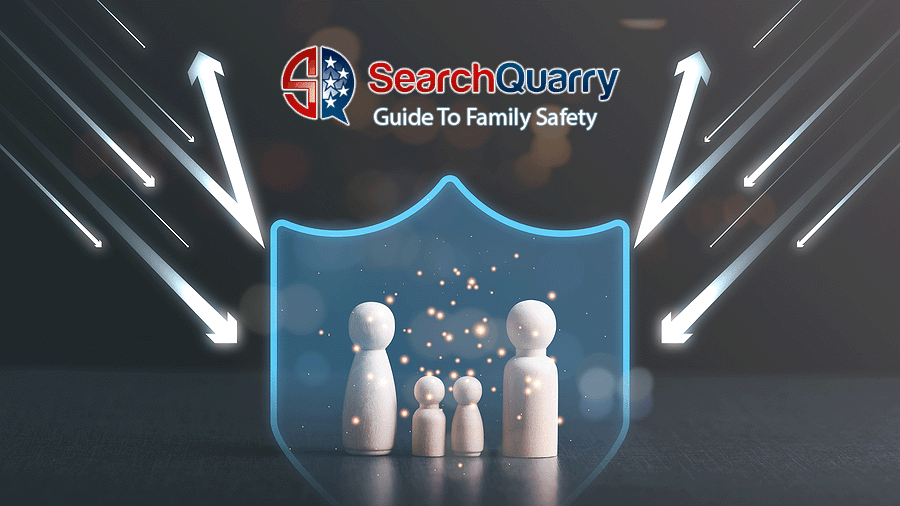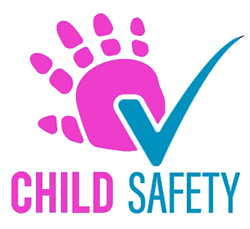Trust with Confidence: An Educational Guide to Safeguarding Your Family

The world today is a complicated place, and while technology has brought about considerable convenience and prosperity, it has also given rise to new dangers. Trust is very important when building relationships, but it must be coupled with the wisdom of safety measures to ensure the protection of our loved ones. Understanding the necessity of safeguards, such as background checks, is key in fortifying your family’s safety and knowing who they interact with. This article serves as an educational guide to helping keep your family safe and using a variety of online resources to help you accomplish this.
Search Quarry’s Guide to Keeping Your Family Safe
Why Background Checks Can Help Keep Your Family Safe
The Need For Vigilance To Keep Your Children Safe
The Importance Of Background Checks In Building Trust
How To Check Someone’s Background Through Public Record Websites
Background Check Privacy Considerations
Nurturing A Safe Online And Social Media Experience For Your Children
Familiarize Yourself With Privacy Settings For Children
Ensuring Your Family’s Safety During Outings
Teach And Reinforce Your Family Safety Rules
Family Safety Faqs
Why Background Checks Can Help Keep Your Family Safe
Background checks are an essential tool for providing an extra layer of security and vetting those that interact with your children. Whether it’s for a nanny or babysitter you’re hiring, a teacher at your child’s school, or your neighbor, background checks can be instrumental in giving you peace of mind. They allow you to objectively evaluate a person’s history, from criminal records to employment history, helping to paint a more accurate picture of who they are and what their character and trustworthiness is. This can be accomplished anonymously online, so nobody will be offended if you are looking up their past. This is all public record by the way, the Freedom of Information Act allows anyone to lookup another person’s public record for verification purposes without permission.
The primary purpose of this type of background check is not to invade someone’s privacy but to ensure the safety and well-being of your family. It can help identify potential risks and enable you to make informed decisions about who you allow into your family’s life. Background checks are an aspect of due diligence that can help identify individuals who may have a history of behavior, or criminal activity, that could potentially pose a threat to you or your loved ones. It is better to be in the know then be sorry for something that could have been avoided.
While there are a multitude of background check resources available online, you might want to use a resource that is anonymous. Running an anonymous background check has several benefits in maintaining the safety of your family. It provides an added layer of privacy, protecting your family’s identity and intentions while seeking critical information about someone. This anonymity ensures you can evaluate the background of individuals without inviting unnecessary attention or potential conflict. By choosing to remain anonymous during this process, you safeguard your family from potential backlash while gaining the information necessary to make informed decisions. This proactive approach is a vital step in ensuring your family’s safety and well-being, giving you peace of mind and confidence in your decisions. Since a person’s background is public record, you can safely choose this option and be completely within your legal rights.
Using your gut instincts is also a something that shouldn’t be ignored. If someone seems a little sketchy or dishonest, you may want to go with that feeling and shelter your family from interacting with that person. It’s important to know that you can only run a background check on adults so if you are evaluating a juvenile or teenager that is interreacting with your family that you don’t like, then your gut feeling might be a good way to assess the situation. While background checks offer a good measure of safety, they are not always available for everyone.
The Need for Vigilance To Keep Your Children Safe
With the rise in online platforms and social media, our children are more exposed to various influences than ever before. It is crucial to recognize the people they are interacting with regularly, whether in person or virtually. Just as you would want to know about the person babysitting your children or the family your child spends time with, you also need to know about the individuals they interact with online.
In recent years, instances of cyberbullying, online harassment, and child exploitation have escalated, highlighting the importance of being more informed about the people in your child’s online world. A thorough background check can expose red flags, providing opportunities for proactive measures, discussion, or intervention. This vigilance can help you make sure your child is safe while allowing them to learn and grow in a safe environment that you can help monitor.
 Does Your Child Carpool to School With Another Parent?
Does Your Child Carpool to School With Another Parent?
Researching another parent who drives your child to school can be a delicate matter, reflecting both your responsibility to ensure your child’s safety and your respect for another person’s privacy. It is important to handle this situation in a considerate and appropriate manner, so as not to offend anyone. Basic background checks like looking up their public social media profiles, talking to other parents, or directly communicating with the person in question, can help you understand more about their character and reliability with your child. If the other parent is involved in any community activities, clubs, or groups, these can also offer insights into their reputation and how they interact with others. Setting a goal to ensure your child’s safety and comfort, not invasive scrutiny of someone’s personal life, can be helpful when going through this process.
Do You Know If Your Babysitter is Trustworthy?
When researching a babysitter to ensure their trustworthiness, there are several steps you can take. The first and most effective way is to ask for and verify references. Previous employers can provide invaluable insights into the babysitter’s work ethic, reliability, and interaction with children. Background checks are another effective tool, although background checks for employment verification will require the babysitter’s consent. These checks can reveal any criminal history that might be a cause for concern. Additionally, researching their online presence can reveal a lot about a person’s character and habits. Looking up the babysitter’s public social media accounts may be informative. In-person interviews are also very important. During an interview, you can assess their character, ask about their experience, and note their interaction with your children. Finally, trust your instincts. if something doesn’t feel right, it might be best to keep looking. This process is about ensuring your child’s safety, so it is okay to be thorough and choosy.
Can You Trust Your Children Around Your Neighbors?
Whether you can trust your children around your neighbors is a decision that depends on several factors. It’s important to first take the time to get to know your neighbors. Have regular, casual conversations with them to understand their values, attitudes, and behaviors. If they have children of their own, observe how they interact with them. You can also gather some insights by speaking to other neighbors or community members who have known them for a longer period. Additionally, if your neighbors spend time with your children, you should discuss this with your kids, teaching them about boundaries and encouraging them to share their experiences and any concerns. Ultimately, your comfort with your neighbors should align with your personal values, judgement, and most importantly, your children’s feelings of comfort and safety around them. Remember, trust is something that needs to be built over time, so take your time and trust your instincts.
If Your Kids Have a Job, Do They Have a Safe Work Environment?
If your kids have a job, it is absolutely crucial to ensure that they have a safe work environment. As parents, we naturally want our children to thrive and succeed, but their safety should always be the top priority. Whether they are working part-time during the school year or taking on a summer job, it is important to be proactive in assessing the safety measures in place at their workplace. This includes both equipment they are using and the people that make up the work culture. For example, does their boss treat them fairly and with respect? Do they pay them fairly for their work or make them stay longer than they agreed upon, which can affect their schoolwork? It might be a good idea to brush up on child labor laws to make sure your kids are being treated fairly while at work.
The Importance of Background Checks in Building Trust
 Trust is a cornerstone in any relationship. It holds especially true when it involves our family members, specifically children. However, trust should not be blind but built on a solid foundation of information and understanding. Conducting a background check allows you to build trust with confidence. You gain a better understanding of the person’s character, integrity, and history, making it easier to trust them with your loved ones. It promotes open dialogue and transparency, qualities essential to trust. Background checks do not undermine trust, but rather they reinforce it.
Trust is a cornerstone in any relationship. It holds especially true when it involves our family members, specifically children. However, trust should not be blind but built on a solid foundation of information and understanding. Conducting a background check allows you to build trust with confidence. You gain a better understanding of the person’s character, integrity, and history, making it easier to trust them with your loved ones. It promotes open dialogue and transparency, qualities essential to trust. Background checks do not undermine trust, but rather they reinforce it.
Being able to find out the truth about a person’s past can play an instrumental role in fostering trust, an essential element in any relationship, especially when it involves the safety and security of our families. When looking a person’s background, we are essentially seeking confirmation of the information provided to us by the individual in question. This process allows us to validate their character, integrity, and trustworthiness. It’s not an act of suspicion, but a process of verification, to ensure that we are making informed decisions based on accurate information. In obtaining and understanding this information, we are equipped to trust individuals with a greater degree of confidence. We can trust that they are who they claim to be and that their history doesn’t harbor any concealed elements that could potentially harm our loved ones. Furthermore, this transparency can foster a sense of respect and trust in the relationship, knowing that it began with honesty and openness. Therefore, researching a person’s past can serve as a foundation upon which trust can be built, ensuring that the individuals we bring into our family’s life are worthy of that trust. These checks ultimately serve as a tool to enhance trust, not diminish it. They allow us to trust with confidence, securing peace of mind in the knowledge that our family is interacting with individuals who have passed a thorough vetting process.
How to Check Someone’s Background Through Public Record Websites
Checking a person’s background through a public record website is a straightforward process, but it does require some attention to detail. First, you’ll need to identify a reliable and legitimate public record website. There are numerous options available, some specializing in certain types of information like criminal records, driving records or vital records such as marriage and divorce records. Once you’ve chosen a website, you’ll typically need to create an account and possibly pay a fee for the service. When initiating a search, you’ll need to input specific information about the individual in question. This usually includes their full name and potentially other identifying information like a date of birth or last known address to ensure you are obtaining information about the correct person. Once the search is initiated, the site will comb through various databases to compile a comprehensive report. This report can include information such as criminal records, civil records (like marriage and divorce records), financial records, and potentially even social media profiles. It’s important to remember that the accuracy and comprehensiveness of the information can vary based on the quality of the website used, the specificity of the information provided, and the public availability of the records sought. Always use this information responsibly and within the bounds of the law to respect the privacy and rights of the individual.
A comprehensive background check may include a variety of elements, such as verification of identity, criminal record checks, education and employment verification, and reference checks. Depending on the situation and level of interaction the individual will have with your family, you may consider a more or less extensive background check.
While you can do some of this research yourself, numerous agencies specialize in background checks. These organizations have access to databases and resources that may not be available to the general public, providing a more thorough and accurate report. These services are usually affordable and well worth the investment considering the potential safety implications.
Background Check Privacy Considerations
While background checks are necessary, it’s essential to respect privacy laws and the rights of individuals. Be sure to comply with all legal requirements and use the information obtained responsibly. After all, the aim here is to build a safer environment for your family and not to invade someone’s privacy. It is also important to note that each state has its own privacy laws in addition to the federal privacy laws to consider when looking up someone’s background. It is also important to know that you can only run a background check on adults, juvenile records are not part of the public record that is accessible by the general public. If a juvenile has a criminal record it will be sealed and cannot be looked up unless you have permission from the parents, or a court order.
Nurturing a Safe Online and Social Media Experience For Your Children
In today’s technology-driven world, the internet and social media have become integral parts of our lives, including those of our children. While the digital landscape offers terrific opportunities for learning, creativity, and connection, it also exposes children to potential risks and dangers. As parents and guardians, it is your responsibility to equip them with the necessary knowledge and tools to navigate the online world safely. Here are some helpful tips on how to create a safe online experience for your children:
 Establish Open Communication With Your Children
Establish Open Communication With Your Children
The foundation of online safety starts with open and honest communication with your family. Encourage your children to share their online experiences, concerns, or any discomfort they may encounter. Let them know that you are there to support and guide them, creating a safe space for discussion without judgment. A helpful way to do this is have a set time that you sit down with your kids to discuss how their day went and and what they accomplished. Having regular communication helps them to understand the importance of communication and sharing with their family and strengthens the trust you have for each other. Setting a foundation of communication can help them quite a bit throughout their academics and greatly benefit them as well adept adults.
Educate Your Kids on Digital Literacy
Teaching your children about digital literacy is crucial. Help them understand the potential risks associated with sharing personal information online, the importance of strong passwords, and the significance of privacy settings on social media platforms. Discuss the concept of digital footprints and how their online actions can have long-term consequences. Inappropriate social media posts or pictures shared online can be indelible and many schools do not discuss this as part of their academic programs. It’s up to parents to educate their kids on proper online etiquette and what is appropriate to share with others.
Set Clear Boundaries and Rules For Your Kids
Establishing rules for internet and social media use is essential. Create age-appropriate guidelines regarding screen time, website access, and which platforms are suitable for your child. Set boundaries on sharing personal information and establish rules about accepting friend requests or engaging with strangers online. This doesn’t just apply to their computer or tablet usage, smartphones can be set with parental controls to only allow specific times kids can use the device as well as only allowing them to access certain websites.
Familiarize Yourself with Privacy Settings For Children
Stay informed about the privacy settings and safety features available on social media platforms your children use. Adjust these settings to limit the exposure of personal information and restrict interactions with unknown individuals. Regularly review and update these settings to ensure their effectiveness. Identity theft is a real danger for children and those under 18, so it is paramount to protect them from future harm that can be caused by someone stealing their identity. If you suspect someone in your family has had their identity compromised, you can submit an identity theft claim to the federal government online or call them directly @ 1-877-438-4338. According to a June 2022 report by the Washington Post, more than one million children have their identity stolen each year.
Encourage Critical Thinking of Your Young Ones
Teach your children to think critically and evaluate online content. Discuss the importance of verifying information from reliable sources and caution them against sharing or forwarding misleading or harmful content. Encourage them to question the intentions and credibility of online sources before accepting information at face value. There are some trusted online tutorials on how to help teach your children critical thinking skills.
Monitor Your Children’s Online Activities
Regularly monitor your child’s online activities, especially when they are young. Keep an eye on their social media profiles, friends, and conversations. Use parental control software or tools provided by internet service providers to filter inappropriate content and set time limits for internet usage. However, remember to strike a balance between monitoring and respecting their privacy as they grow older. Make sure that what they’re engaging with online is appropriate for their age. It is helpful to explain in detail why some online activities are inappropriate in stead of just telling them no.
Foster Empathy and Respect
Promote empathy and respect in your child’s online interactions. Teach them to communicate respectfully, avoid cyberbullying, and stand up against it if they witness it happening to others. Encourage them to report any inappropriate or harmful behavior to you or a trusted adult. They can learn to be respectful without being confrontational in difficult situations. Being aware of others and showing them empathy can help them become great roll-models for other children.
Be a Positive Role Model To Your Kids
Children learn by observing their parents and guardians. Be a positive role model by demonstrating responsible online behavior. Show them the importance of empathy, respect, and digital etiquette. Limit your own screen time and engage in activities that promote face-to-face interactions and quality family time. Setting some one on one time every day can greatly benefit children’s development and social skills.
Ensuring Your Family’s Safety During Outings
Spending quality time with your family through outings and adventures is a wonderful way to create lasting memories. Whether you’re planning a day at the park, a festival, a beach vacation, or a hike in the mountains, prioritizing safety is essential to ensure a fun and worry-free experience for everyone. By taking a few precautionary measures and being prepared, you can significantly reduce the risk of accidents and mishaps on your family outing. Here are some important tips to ensure your family’s safety during outings:
 Plan Ahead and Research the Family Outing
Plan Ahead and Research the Family Outing
Before embarking on any outing, conduct thorough research about the destination, activities, and potential risks. Check weather conditions, travel advisories, and any specific guidelines or regulations that may apply. Researching in advance allows you to make informed decisions and plan accordingly, ensuring the safety and well-being of your family.
Pack Family Essentials and Emergency Supplies
Create a checklist of essential items to pack for each outing. Carry enough water, snacks, and necessary medications, especially if you’re traveling to remote areas. Don’t forget to include a first aid kit containing bandages, antiseptics, insect repellents, sunscreen, and any other supplies relevant to your specific activity. Having these supplies readily available can make a significant difference in addressing minor injuries or emergencies promptly.
Dress Appropriately and Bring Proper Gear For Your Family
Choose appropriate clothing and footwear for the outing, considering the weather conditions and the activities you plan to engage in. Dressing in layers allows you to adjust to temperature changes. Additionally, ensure that everyone in your family has access to suitable safety gear, such as helmets, life jackets, and reflective clothing, depending on the activity. Proper gear significantly reduces the risk of injuries and ensures a safer experience.
Practice Water Safety With Your Family if Planning to Play in the Water
If your outing involves water activities, it’s crucial to prioritize water safety. Ensure that all family members, especially children, wear life jackets when swimming, boating, or participating in any water sports. Stay within designated swimming areas, follow lifeguard instructions, and be vigilant about potential hazards, such as strong currents or underwater obstructions. Moreover, make sure that adults are always present and actively supervising children near water bodies.
Stay Connected and Communicate Often on Your Family Outing
Maintaining communication during outings is vital for safety purposes. Make sure to carry fully charged mobile phones and have a backup power source if necessary. Agree on a meeting point in case family members get separated and establish clear communication protocols. If you are exploring areas with limited or no cell reception, consider using walkie-talkies or other alternative communication devices to stay connected.
 Be Mindful of Sun Protection
Be Mindful of Sun Protection
Protecting your family from the harmful effects of the sun is essential, especially during outdoor activities. Apply sunscreen with a high SPF to exposed skin, wear wide-brimmed hats and sunglasses, and seek shade whenever possible. It is important to re-apply sunscreen regularly, particularly after swimming or sweating. Sunburns and excessive sun exposure can lead to long-term damage, so it is crucial to prioritize sun protection. According to the Skin Cancer Foundation, there were 3.6 million cases of skin cancer in the United States in 2022.
Teach and Reinforce Your Family Safety Rules
Before setting off on any outing, discuss and reinforce safety rules with your family members. Educate children about potential hazards and the importance of following instructions. Emphasize the significance of staying together, not talking to strangers, and respecting nature and wildlife. By instilling safety awareness in your family, you empower them to make responsible choices and minimize risks.
Use Phone Tracking or a Tracking Device for Your Family Members
Most smartphones have the ability to track within the phone settings. That way you can keep tabs on your entire family throughout your outing. This is especially helpful if someone gets separated or goes off on their own. If your phone does not support this, then there are other personal tracking options such as the iPhone Air Tags or the Android equivalents. It is a helpful way to make sure you know the whereabouts of everyone. You might want to slip an Air Tag into your younger children’s clothing so that they can be found anywhere you go. It is also a good idea to discuss a meeting place if you get separated, such as your vehicle or a centralized location that is easy for everyone to find. This way if your tech fails, you have a backup plan.
Always Know Where Your Young Children Are
Child Abduction is a huge problem in the United States, according to the FBI, there were 359,094 child abductions in 2022. The number is feared to be much larger since not all children are reported missing, and this number has grown larger in recent years. The most common age of children that are abducted is 6 years old, so it is paramount to keep close tabs on your young children, especially in crowded places. Using tracking devices is often not enough. Having eyes on them constantly, and supervision with all their activities during outings can greatly reduce the risk of abduction. Never leaving them alone, and making sure that if they are with another adult that you completely trust their ability to do the same, is also key in reducing this risk. Since young children do not necessarily have the ability to evaluate who is safe and who is not, it is the parents responsibility to do the vetting. If you decide to allow another adult to supervise your children, then you may want to run a quick background check on them as an extra measure of safety.
Conclusion: Safeguarding Your Family
In this age of rapidly advancing technology and a world growing smaller by the day, safeguarding your family is paramount. While trust is essential, it should never come at the expense of safety. By implementing background checks into your family’s safety measures and monitoring your family’s online interactions, you can add an extra layer of security, ensuring that the people your family associates with are who they claim to be. Common sense and gut feelings are always important to pay attention to, there is not always time to run a proper check on a person, so your observations are key in making sure your family is well protected.
If you’re on an outing make sure to have a checklist and go over the safety concerns and risks with your family so everyone is aware. This will allow you to have fun without worrying as much. Also consider using some type of tracking to keep track of where your family members are at, especially at crowded locations. Being prepared and proper planning can make your family outings a lot safer and more fun for everyone. Have a backup plan and a meeting place for all occasions, do not solely rely on technology as it can fail at the time you need it most. “Chance Favors The Prepared Mind,” a quote from the famous French microbiologist Louis Pasteur who created the process of pasteurization. Which means the more prepared you are, the better your will do with uncertainty and unexpected events.
Family Safety FAQs
Why is it important to know who my family members are interacting with?
It is important to be aware of your family's social interactions to ensure their safety and wellbeing. This knowledge helps you prevent potential negative influences or harm, identify problematic relationships, and support their positive interactions.How can I monitor my children's online interactions without invading their privacy?
It is important to establish open and trusting communication with your children about online safety. Educate them about potential risks, encourage them to share their experiences, and use parental controls judiciously to monitor their online activities.What measures can I take to ensure my family's safety during outings?
Always be aware of your surroundings. Teach your family about the importance of staying together in crowded places, avoid sharing personal information with strangers, and maintain regular contact when not together.How can I teach my children about safe interactions with strangers?
Talk to them about the difference between safe and potentially dangerous situations. Use role-playing scenarios to teach them how to respond to strangers. Remind them never to go anywhere with someone they don't know, even if the person claims to know you.How can I ensure that my family members are safe at school or work?
Encourage them to share their day-to-day experiences with you. Stay in contact with their teachers or supervisors, and keep up-to-date with their school or work environment's safety measures.What should I do if I suspect a family member's friend or associate could be harmful?
If you have a legitimate concern, communicate with your family member openly but respectfully about your worries. If the person in question is a minor, you may need to involve their parents. In severe cases, consider reaching out to local authorities.How can I foster trust within my family so they feel comfortable discussing their social interactions?
Foster an environment of open and non-judgmental communication. Make sure each family member knows that their feelings and concerns are important and that they can confide in you without fear of retribution or ridicule.How can I help my children understand the dangers of sharing personal information online?
Educate them about the risks of sharing personal information on the internet. Explain that what gets posted online can often be seen by anyone and may be impossible to fully remove. Encourage them to use privacy settings on social media platforms.What steps can I take to ensure my family's safety at home?
Install a robust home security system, teach everyone how to use it, and practice regular home safety drills. Educate your family about not opening the door to strangers and keeping doors and windows locked when home alone.How can I ensure my family's safety when they are traveling alone or with friends?
Teach them to stay alert and aware of their surroundings, to keep important contact numbers handy, and to maintain regular contact with home. In the case of younger children, ensure they are accompanied by trusted adults.How can I safeguard my family from cyberbullying?
Establish rules about internet use, teach them to treat others with respect online, and make them aware of the consequences of cyberbullying. Encourage them to come to you if they are being bullied or see bullying online.What steps can I take to ensure my child is safe when using public transportation?
Teach your child about the basics of public transportation safety: to stay alert, keep personal belongings secure, and not share personal information with strangers. Ensure they know the routes and how to seek help if needed.How can I ensure the safety of my family during emergencies or natural disasters?
Create an emergency plan that includes evacuation routes, meeting points, and emergency contacts. Keep emergency supplies handy and conduct regular drills so each family member knows what to do.How can I protect my family from scams or fraud?
Teach your family members to be skeptical of unsolicited contact or too-good-to-be-true offers. Regularly monitor bank and credit card statements for suspicious activity. Keep personal information secure and use strong, unique passwords for online accounts.What steps can I take to protect my family from potential dangers in the neighborhood?
Stay informed about your local community's safety status. Encourage your children to play in groups, not to talk to strangers, and to be aware of their surroundings. Get to know your neighbors and consider joining or starting a neighborhood watch program.How can I keep my family safe from potential dangers while on vacation?
Prior to travel, research about your destination's safety and rules. During the vacation, keep your belongings secure, avoid less crowded or poorly lit areas, and maintain regular communication with each other.How can I ensure my familyu2019s safety when theyu2019re interacting with new acquaintances?
Teach them to be cautious while revealing personal information to new friends. Encourage them to introduce new acquaintances to the rest of the family. Also, remind them of the importance of trusting their instincts when something feels off.How can I make sure my children are safe when they're at a friend's house?
Get to know the parents of your childrenu2019s friends. Discuss any rules or restrictions your child should follow while at their friendu2019s house. Ensure your child knows to contact you if anything makes them uncomfortable.What precautions should I take to keep my family safe from household accidents?
Keep hazardous materials and medications out of reach of children. Install safety gates, window guards, and corner protectors if you have young children. Regularly test smoke alarms and carbon monoxide detectors.How can I encourage my teenage children to practice safe driving?
Set a good example with your driving behavior. Ensure they understand traffic rules and the importance of not using a phone while driving. Discuss the dangers of driving under the influence of drugs or alcohol. Encourage them to always use seat belts and follow speed limits.Before Comments
Please be advised that the information accessed through SearchQuarry.com searches may not always be accurate or current, as we neither generate nor authenticate the data provided via our service. The reliability and precision of information are primarily contingent upon diverse public sources from which data is compiled. By utilizing SearchQuarry.com, you acknowledge your acceptance of the terms delineated in the SearchQuarry.com terms of service and our privacy policies. Information acquired via SearchQuarry.com must not be utilized for unlawful purposes such as stalking or harassing individuals, or scrutinizing public figures or celebrities. Individuals who contravene these directives may be subject to both civil and criminal legal proceedings and sanctions. It is explicitly stated that SearchQuarry.com does not function as a "consumer reporting agency" as defined by the Fair Credit Reporting Act ("FCRA"), and therefore, does not furnish "consumer reports" pursuant to the FCRA. SearchQuarry.com strictly prohibits the utilization of information garnered from search results (a) for discriminatory practices against any consumer; (b) for assessing a consumer's eligibility for personal credit, insurance, employment, housing, or government licenses or benefits; or (c) in any other manner that may impact a consumer's economic or financial status or standing.


Comments
Last Updated: 2023-06-01